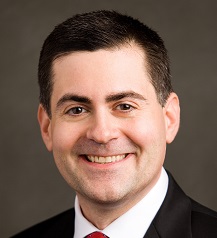This story was edited after posting to correct an error in the ninth paragraph.
By Bob Allen
Southern Baptist Convention leader Russell Moore teamed up with Republican presidential candidate Sen. Marco Rubio in a Dec. 24 Washington Post commentary calling out the Obama administration on behalf of persecuted Christians.
 Moore, head of the SBC Ethics and Religious Liberty Commission, and Rubio, who is Catholic, said the current administration pays too little attention to the plight of Christian communities facing violence, oppression or harassment around the world.
Moore, head of the SBC Ethics and Religious Liberty Commission, and Rubio, who is Catholic, said the current administration pays too little attention to the plight of Christian communities facing violence, oppression or harassment around the world.
They faulted the State Department for reports that it is on the verge of finding ISIS is committing genocide against non-Muslim Yazidis in Iraq but might not do so for equally embattled Christian communities.
Moore and Rubio said they “worked closely together” to help achieve the October reauthorization of the U.S. Commission on International Religious Freedom, an independent advisory body that monitors violations of religious freedom abroad and makes policy recommendations to the president or Congress.
As important as the commission is, they said, “it can only do so much without a president or State Department willing to take its counsel seriously.”
“With our many blessings comes a duty to stand on the side of the oppressed, which is why a pillar of American foreign policy has always been moral clarity,” they wrote. “Sadly, today that pillar is crumbling.”
Observers say collaborating with Moore could help Rubio gain support among evangelical voters in the upcoming primary battles.
Moore, widely perceived as less partisan than his predecessor Richard Land, has harshly criticized GOP frontrunner Donald Trump and evangelicals who support him.
 In August Moore interviewed Rubio and former Florida Gov. Jeb Bush — at the time the two Republican frontrunners — in front of thousands of pastors and church leaders attending a North American Mission Board conference in Nashville, Tenn. Democratic candidate Hillary Cllinton was invited but did not attend.
In August Moore interviewed Rubio and former Florida Gov. Jeb Bush — at the time the two Republican frontrunners — in front of thousands of pastors and church leaders attending a North American Mission Board conference in Nashville, Tenn. Democratic candidate Hillary Cllinton was invited but did not attend.
In a 2013 Wall Street Journal story published shortly after he took over as the Southern Baptist Convention’s top spokesman on public policy concerns, Moore said it is time for conservative Christians to tone down the rhetoric and pull back from single-issue politics, citing a “visceral recoil” among younger evangelicals to the culture wars.
“We are involved in the political process, but we must always be wary of being co-opted by it,” Moore said. “Christianity thrives when it is clearest about what distinguishes it from the outside culture.”
After Religious Right leaders criticized him for retreating from the fight for traditional values, Moore clarified that he wasn’t advocating disengagement from politics but rather “a different sort of engagement” that does more than “simply live off the fumes of the last generation’s activism.”
Moore discussed his philosophy about presidential politics in a May 2014 interview with Baptist Press.
“I don’t endorse candidates. I’m not going to endorse a candidate. I’ll never endorse a candidate for president,” Moore said. “I don’t think that’s my job. But I’m willing to meet with anyone who wants to talk about what Southern Baptists are about and what sorts of things are of concern to us.”
In addition to including Iraqi Christians in the “genocide” label, Moore and Rubio urged the administration to stop treating the suppression of religion in China as an “internal affair” and to challenge nations with blasphemy laws in the Middle East.
The latest Reuters poll shows Trump leading the Republican primary race with 39.3 percent of all respondents. Sen. Ted Cruz, a Southern Baptist, is second with 12.8 percent, followed by neurosurgeon Ben Carson at 9.6 percent and Rubio at 8.5 percent. The next largest bloc, with 7.4 percent, is those who “wouldn’t vote” if the election were held today.
President Obama issued a statement on persecuted Christians on Dec. 23 saying that as Christmas approached he and First Lady Michelle Obama would “join with people around the world in praying for God’s protection for persecuted Christians and those of other faiths, as well as for those brave men and women engaged in our military, diplomatic, and humanitarian efforts to alleviate their suffering and restore stability, security, and hope to their nations.”
